Last week, Scandal ended after seven seasons.
As I watched the reactions happen on Twitter in real-time, I noticed three recurring motifs:
- Most fans REALLY wanted Olivia and Fitz (“Olitz”) to end up happily ever after in Vermont
- Many fans wanted SOME kind of karmic or legal justice for the characters’ illegal actions
- Almost NO ONE was on board with one specific plot twist
Before you read any further, let’s get the obvious disclaimers out of the way:
SPOILERS AHEAD for the series finale of Scandal, for Star Wars: The Last Jedi, and a minor plot point in Harry Potter and the Deathly Hallows.
Now then…
What I found most interesting is that, even after the episode wrapped, the Scandal fandom mostly came to terms with points A and B above. They could rationalize the ending’s details within the context of the show’s theme, Olivia Pope’s character arc, what the characters represent in our current sociopolitical era, and Shonda Rhimes‘s track record as a showrunner who never gives you exactly what you want (see: most plot twists on Grey’s Anatomy).
But even after all that, people were still pissed about that one specific plot twist.
Which one?
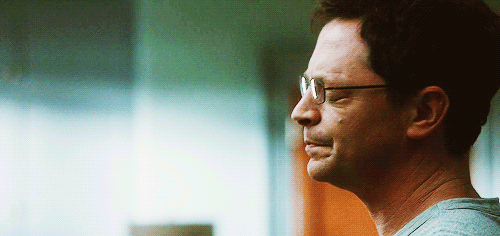
The one where Attorney General David Rosen (Joshua Malina) — widely referred to as the show’s only true “white hat” character — drinks a poisoned drink offered to him by his enemy, Vice President Cyrus Beene (Jeff Perry).
For many fans, it wasn’t just that David died, or even necessarily how he died, that frustrated them.
It was that David made a choice that seemed entirely inconsistent with the character they’d come to know for seven seasons.
In fact, the only fans who seemed to think the twist was justified were fans who tweeted comments to the effect of, “David, if you’re stupid enough to drink that, you deserve to die.”
I asked fans of the show if they thought David’s choice was in character and on-theme. Across the board, of the 15 fans who responded, NONE of them agreed. Each of them thought his choice was either out of character, off-theme for the show, or both.
To make matters worse, nothing really happens to Cyrus as a result. He caps off a career of questionable actions with a literal murder and he essentially gets off clean. (Interestingly, that wasn’t the original plan, but Shonda Rhimes cut several scenes from the finale, which makes her canonical ending less satisfying and less thematically balanced than most fans would probably prefer.)
I find this fan disconnect over that plot point fascinating, because it reveals a hidden truth about the unspoken contract between an author and an audience. Namely: once you establish the norms of your world and your characters, your audience will follow you anywhere — until you violate your own norms.
All of which got me thinking about Star Wars.
The Fandom Awakens… and It Is Frustrated
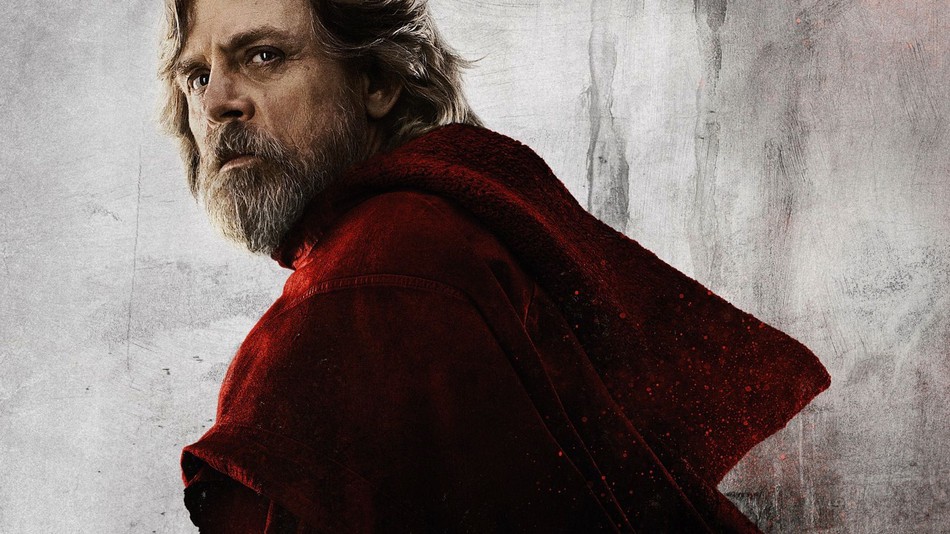
As soon as George Lucas sold Disney the rights to Star Wars, it was clear that nothing about the franchise would ever be the same.
While megafans think of Star Wars as America’s pop culture pinnacle, Disney views Star Wars as a brand capable of creating immense profit.
Disney’s intention is to tell a new Star Wars story every year (at least). To do this, Star Wars had to evolve from the brainchild of essentially one man (George Lucas plus an army of artists and technicians loyal to his authorial vision) to an MCU-esque shared universe with different pieces created by different authors and filmmakers.
Naturally, this is going to cause some dissonance between authorial intentions and fan expectations.
The Force Awakens rebooted Star Wars for a new generation, and it was generally well-received. J.J. Abrams used his “mystery box” storytelling tropes to create new questions (“Who are Rey’s parents? Who is Snoke? What happened to Luke?”) that felt like organic additions (or retreads, if you prefer) to the original trilogy.
But then director Rian Johnson took The Last Jedi in a new direction, and a vocal contingent of fans were not pleased.
Their biggest issue? Luke Skywalker was acting out of character.
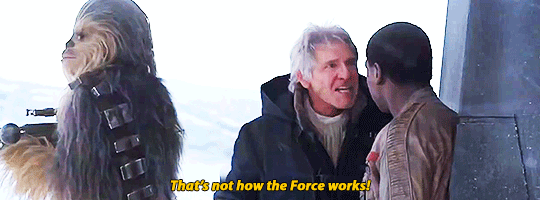
When the entire plot of a Star Wars film hinges on the franchise’s hero momentarily becoming a villain… well, yeah, actually that is consistent with the theme.
But when a pivotal action isn’t set up logically — or gets relegated to a flashback — it doesn’t feel narratively or emotionally satisfying.
Worse, Mark Hamill went public about his own disagreements with Rian Johnson about Luke’s choices and actions in The Last Jedi. At the time, Hamill himself thought they were inconsistent with the way the character had been established up until then. (He’s since regretted sharing his comments, but for many fans the damage was already done. “If you’ve lost Mark Hamill…”)
Whether you agree with Johnson’s choices or not — and, personally, I appreciate a lot of what he did and didn’t do with his story — no amount of logical rationalization will bridge the gap that some fans feel was created between the Luke they thought they knew and the Luke they’re now being asked to accept.
What Causes a Character to Seem “Out of Character”?
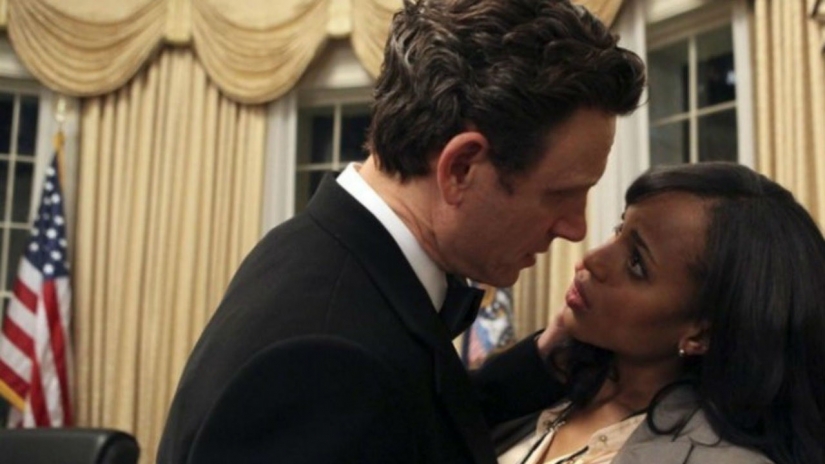
No, this is normal…
Let’s go back to Scandal for a second.
During a roundtable discussion with Shonda Rhimes and the show’s writers, a Vulture columnist asked a question that could have been asked by many of the show’s fans:
Are there plot points or character choices that the actors have pushed back on or said, “I don’t know if my character would do that?”
Rhimes: No. I say it like that because nobody says “I don’t know if my character would do that” here, which is awesome. We have this amazing, collaborative world in which everybody accepts that their character would do it because the writers wrote it, and then we accept that their job is to make it happen in a way that’s super cool. We’re not going to tell you how to do it, you don’t tell us how to write it. And that’s what makes it so interesting, to see what they do and then come back to the room and go, “Oh my god, they did it this way,” and that affects what happens next. Right?
This sentiment was echoed by an actor friend who told me: “I tend not to think ‘He wouldn’t do that!’ because I learned character is defined by action. He did it, so that changes his character into someone who would do that.”
To me, this creates an interesting dichotomy of expectation — for actors and for an audience.
On one hand, yes, if the author wrote something, or if the actor did something, then that does canonically prove this character is someone who would do that thing.
On the other hand, actors and audiences alike base their understanding of each character on the collective body of observations we’ve made about them up to that point. And if we haven’t seen any evidence that a character would do a thing, then suddenly seeing a character do something seemingly out of context from their established norms will break our experience of the story.
Case in point: the many confusing choices made by Jon Snow and a team of otherwise rational people in the infamous “let’s go find a wight” episode of Game of Thrones.
This dissonance is rooted in reality — or at least in the “reality” created by fictional shows.
In real life, we base our expectations of the people we know on what we’ve seen them consistently do and not do. We also take into account that everyone has their weaknesses, bad habits, and blind spots.
Thus, if your Uncle Steve is generally a nice guy, but you also know he had a history of troubled alcoholism 30 years ago, you have a certain range of expectations for what your Uncle Steve would normally do vs. what he might do under duress.
Therefore, if you noticed that uncle Steve’s behavior was becoming cloudier and more erratic, you have the context cues to infer that he may be struggling with a long-suppressed problem. On the other hand, if you find out that Uncle Steve suddenly quit his job, left his family, and is living in a van by the river — but just last week he was cheerfully helping you install a new deck — you’d be stunned. Even though you know Steve has the capacity for that behavior, you hadn’t seen any recent contextual signs of it, so to you it comes out of the blue.
This is similar to how we process the actions of fictional characters — especially ones we’ve known for years (or seasons). We want to believe we understand our favorite characters the same way their authors do, even though the authors (usually) know them better. So when an author has a character make a choice that seems out of character to us, they may think it’s consistent with their understanding of the character, even though we lack that same big-picture context.
It’s why I always found it strange that Ron and Hermione didn’t seem to have much of a reaction when Lavender Brown dies during the Battle of Hogwarts, given that they’ve had a fractious love triangle in the past.
It’s why Luke Skywalker cutting himself off from the force after nearly murdering his nephew seems out of character when compared to the troubled but optimistic hero we’d come to know for 30 years.
And it’s why David Rosen, who managed to survive seven years of high-stakes life-and-death in Washington, D.C. — and who literally had almost been killed earlier in the episode — seems entirely out of character when he makes a choice that anyone who’s ever seen The Princess Bride knows to avoid.
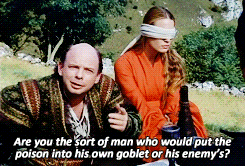
So… how can a writer avoid putting characters into the “out of character” pitfall?
Three Ways to Keep Characters In-Character
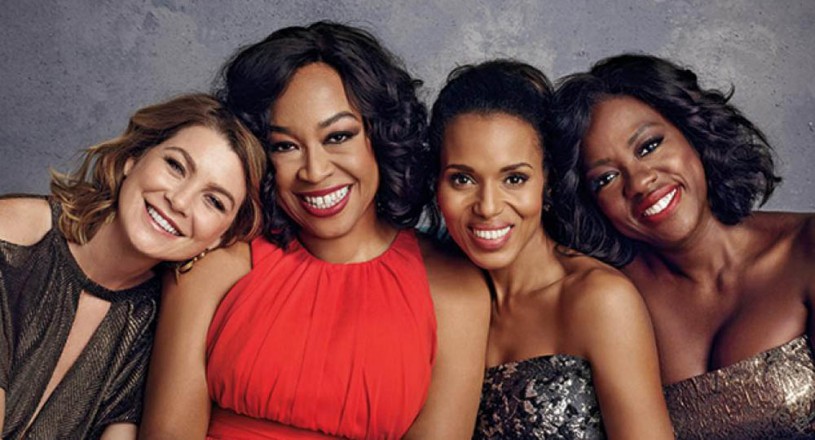
Shonda Rhimes with the women who live and die by her keyboard
Since most “out of character” issues stem from a gap between audience expectations and authorial intentions, here are three ways to close that gap.
Establish the character’s full scope of potential early on. Are you writing a show with fuzzy moral boundaries like Scandal, where every character exists on a spectrum between “lawful good” and “chaotic evil”? Or a story where some characters have seemingly limitless powers?
The earlier you can depict each character’s extreme boundaries (lying, theft, betrayal, murder, etc.), the more clearly the audience will understand what they are and aren’t likely to do. And even if you don’t reveal all of a character’s powers or abilities immediately, giving your audience an example of the upper limits of what’s possible in your world will help them understand what a character is potentially capable of vs. what is (or at least what they’ll expect to be) blatantly impossible.
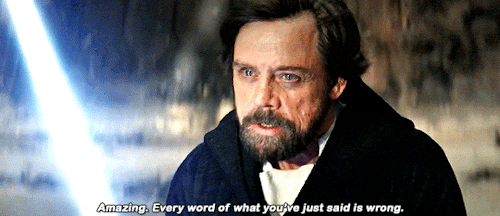
Establish the exceptions to your character’s rules. As with Uncle Steve above, if your good characters have nagging flaws, or your villains have bright spots, show them early. Generally speaking, we’re more accepting of a surprise kindness from a villain than we are of a shocking heel turn from a hero. So if your hero really is capable of betraying his teammates out of cowardice when he’s under extreme pressure, we at least need to see some inkling of that outlier before it happens.
When in doubt, don’t have a character do something that’s wildly below his/her level of experience, intellect, or emotional intelligence. Fans will forgive a great many things about the characters and stories they love, but if there’s a cardinal sin, it’s forcing a character to do something s/he has been repeatedly proven to be too smart / strong / kind to fall prey to.
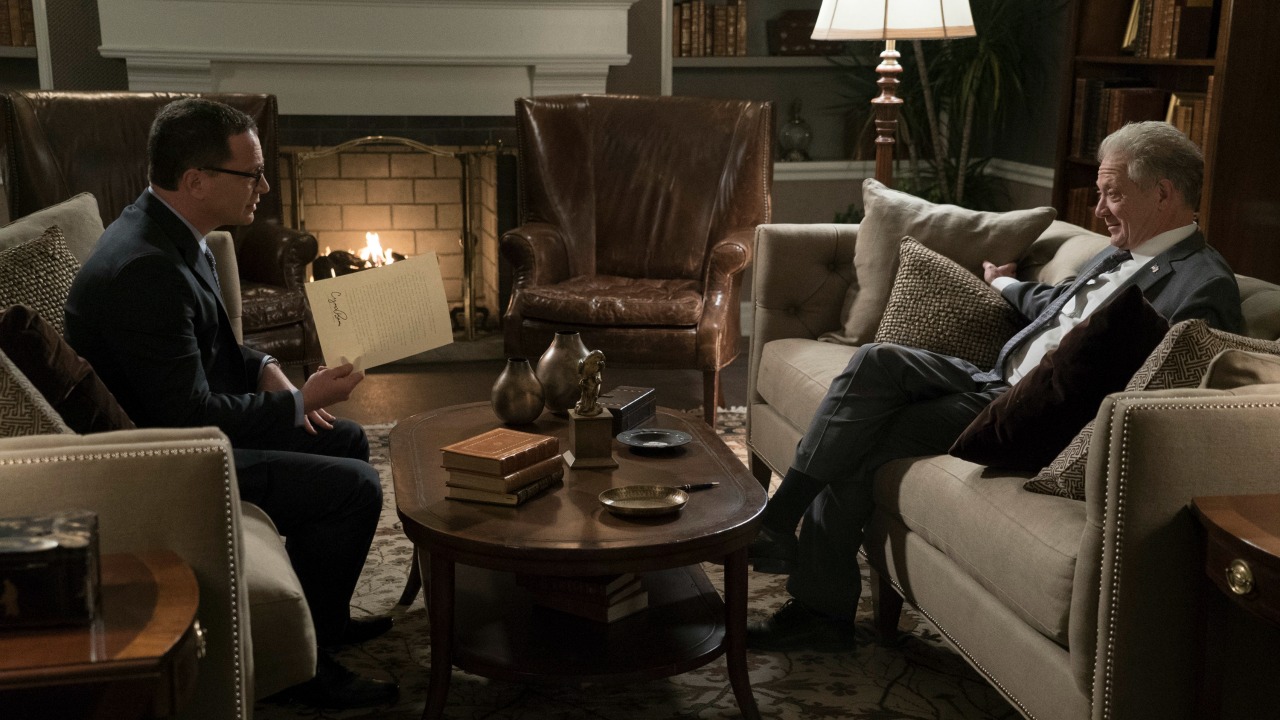
“Join me for a cocktail?”
We all make stupid mistakes in real life, no matter how smart we are. But that’s because we’re imperfect authors of our own story. We expect better and more fulfilling choices from the authors of our fictional worlds.
And when a character makes a stupid mistake that seems to defy the logic and the theme of your established story, that doesn’t just disrupt the reading or viewing experience. It’s a license for fans to lose faith in a story that no longer seems to understand itself.
So now I’m curious: what character choice in a movie, TV show, book, etc., did YOU think was so out of character that it changed your appreciation of the story? Tell me in the comments below.
Like This Post?
Subscribe now and you’ll never miss a new post. (I send an email update weekly-ish.)
Also, you may like discovering the character flaw in Molly’s Game, or why Outlander is the show we need right now.
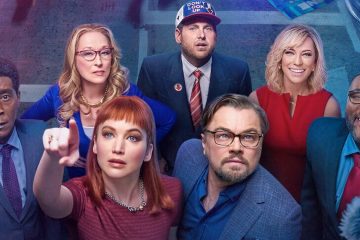

0 Comments